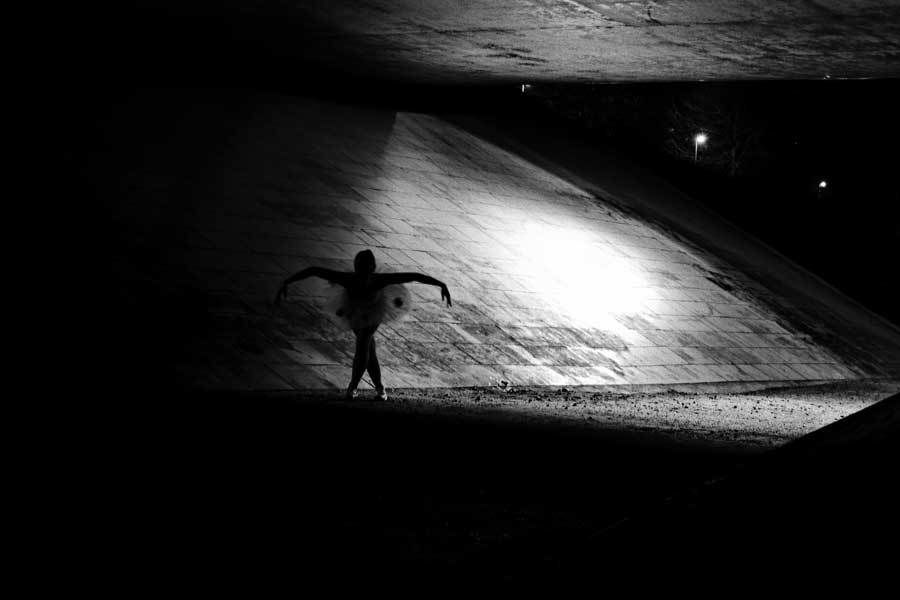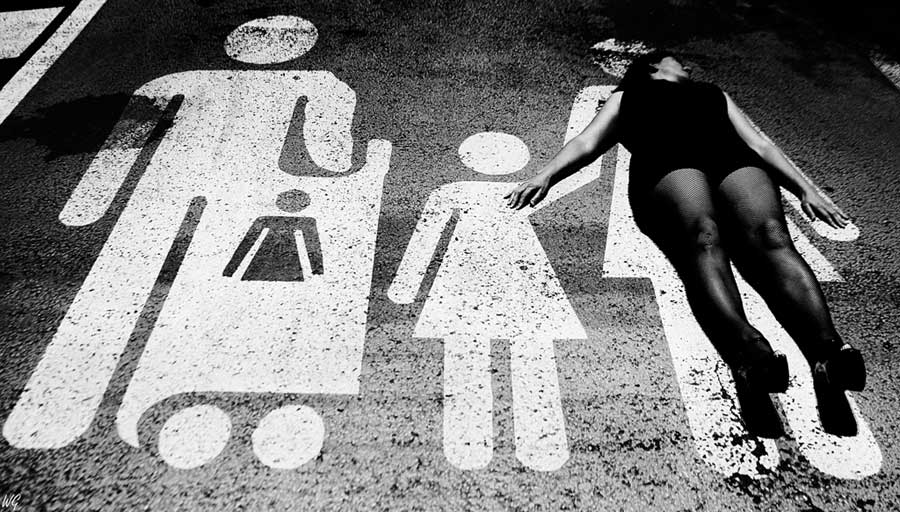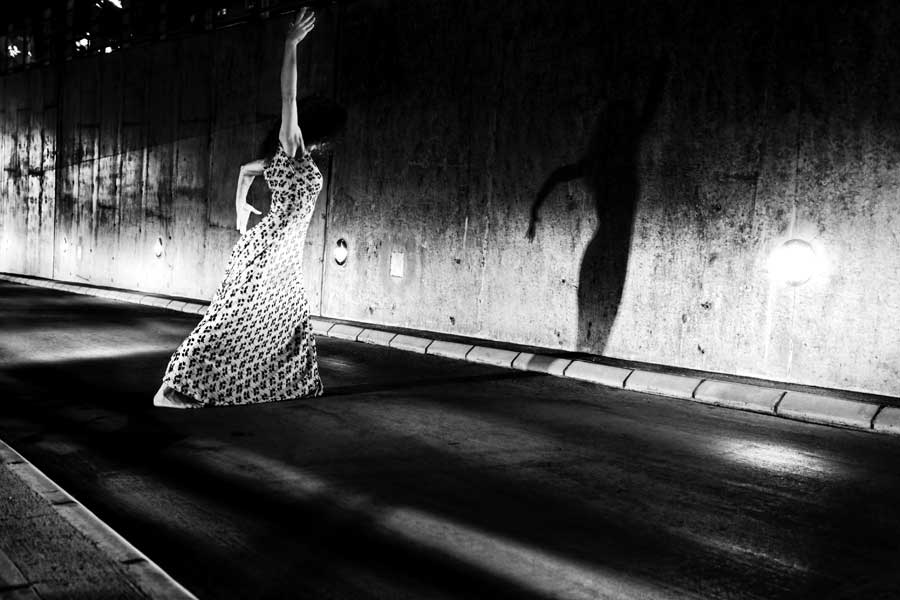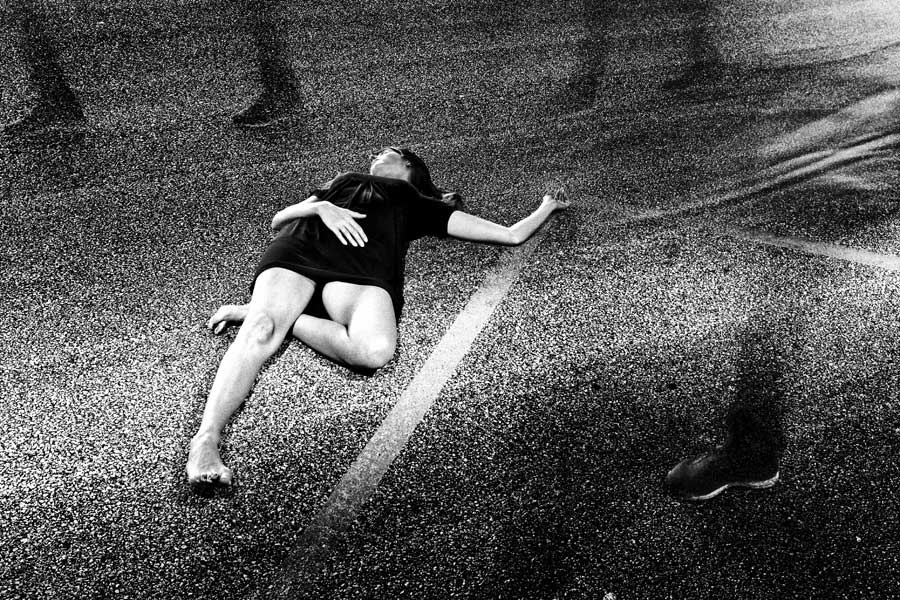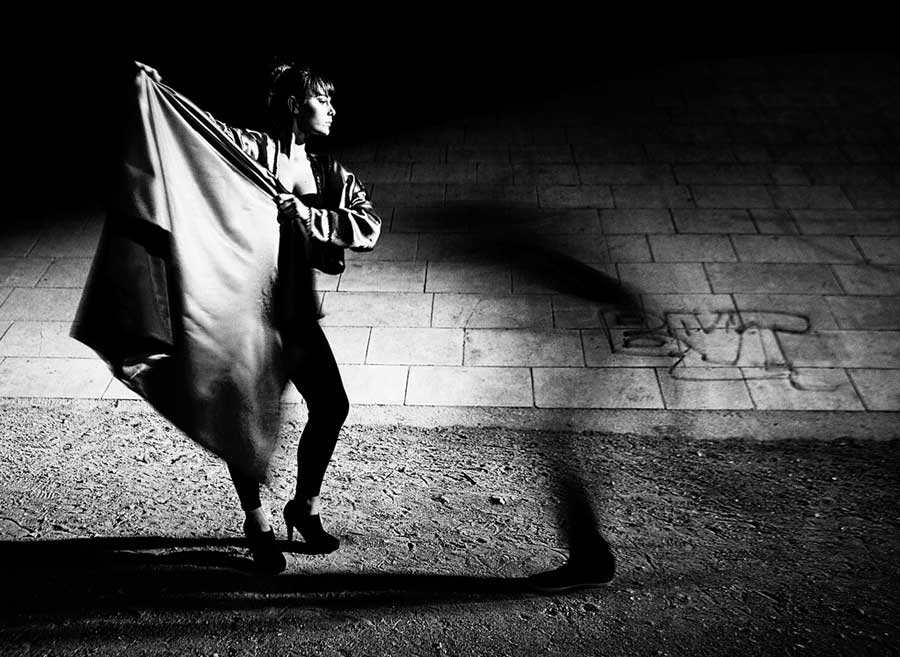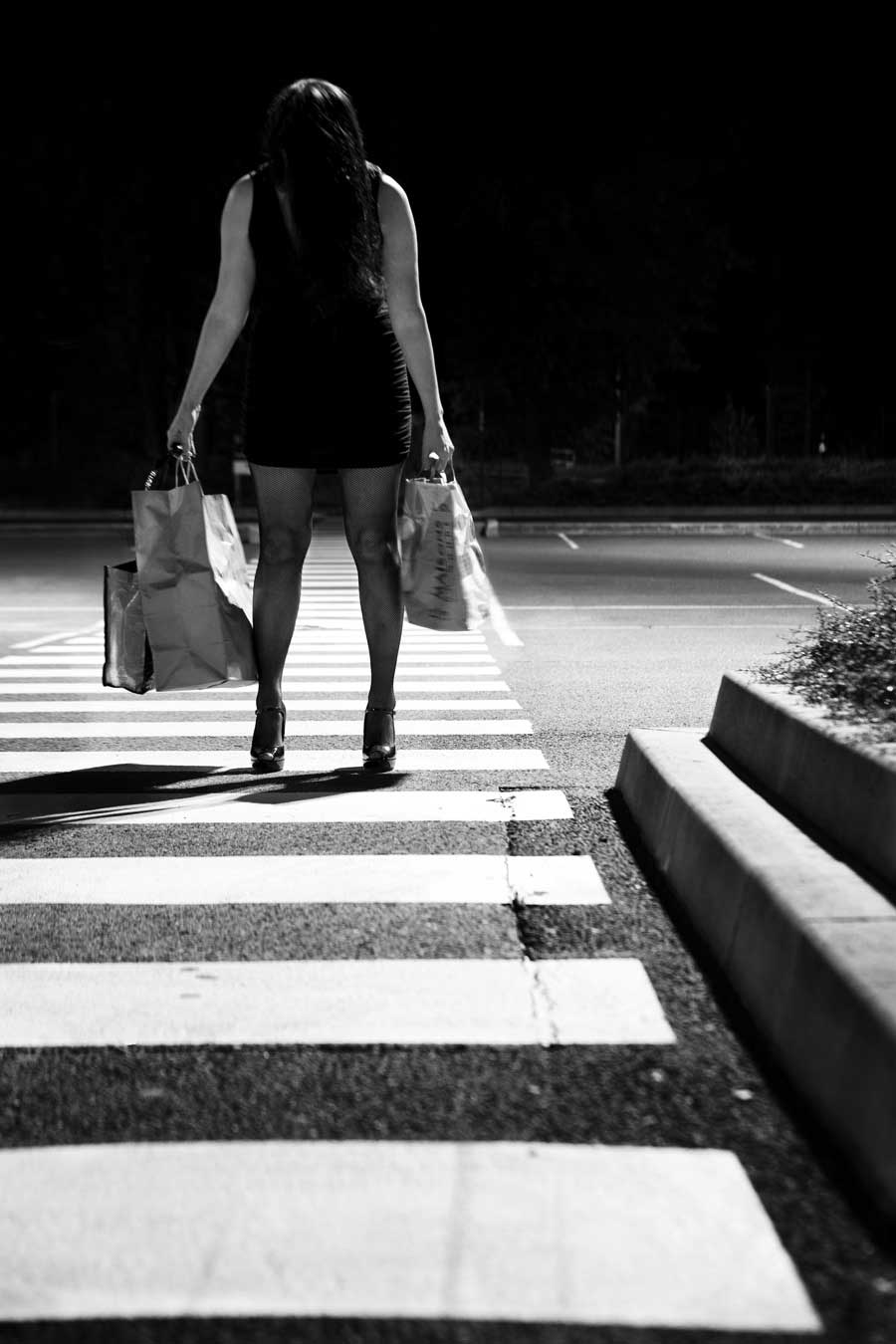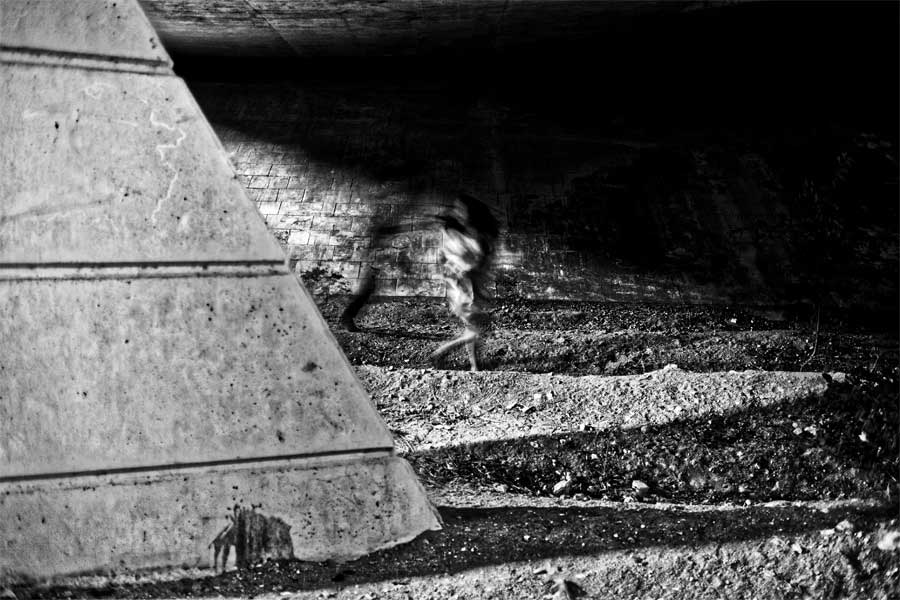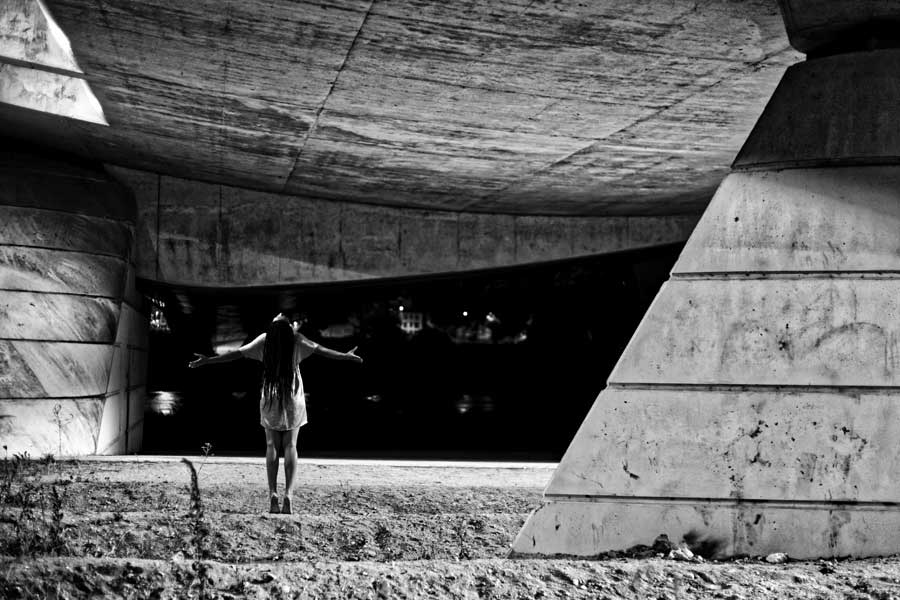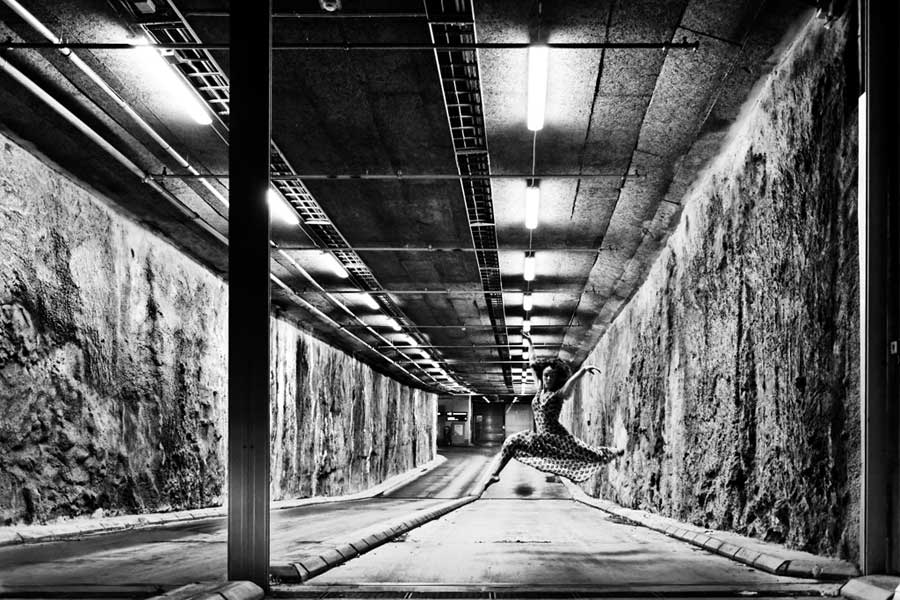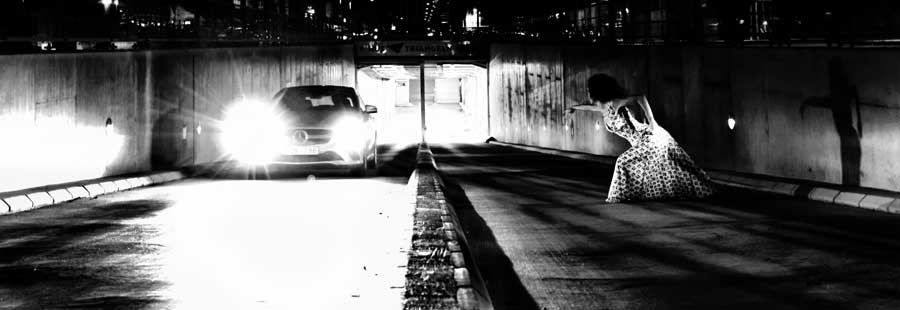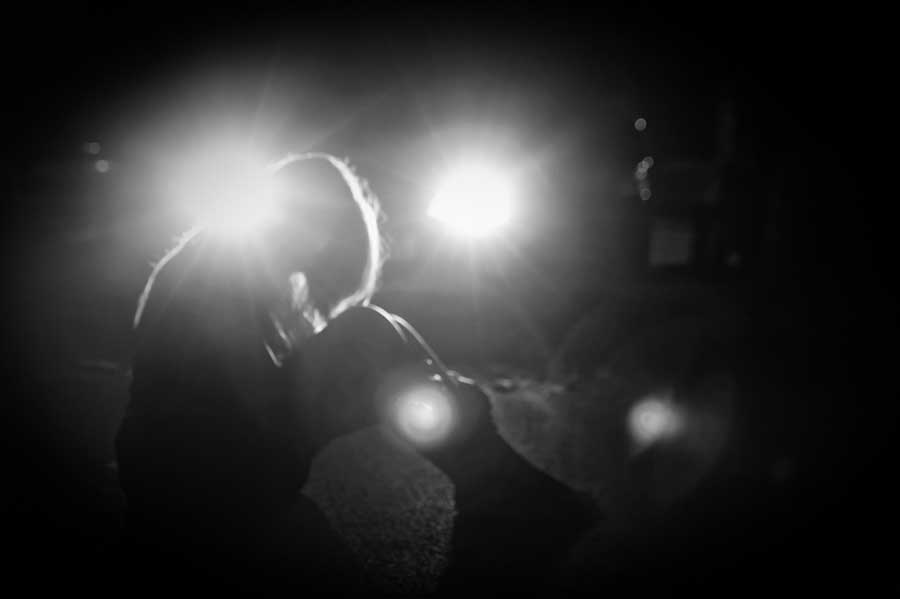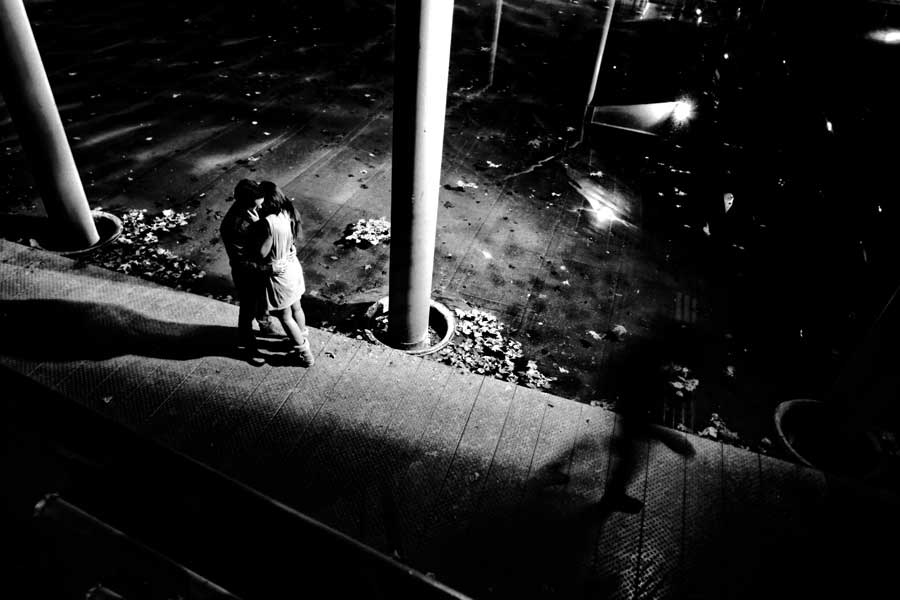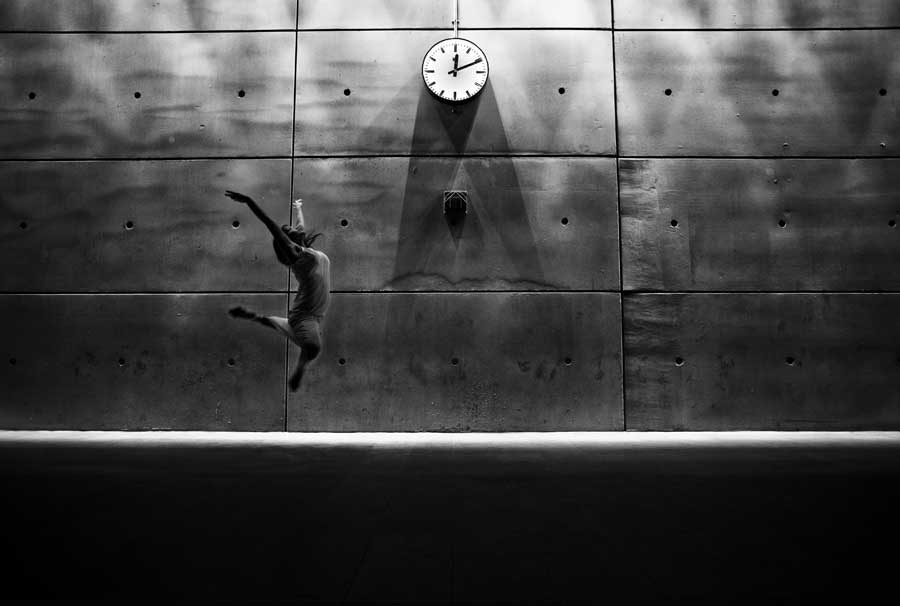The urban space is unequally shared between genders. Patriarchal cultural codes make the street as a place dominated by men. If it is well accepted that men can stay in the street, women only cross it. They moved from one place to another but do not stroll. Sexist insults, scary “compliments”, whistles, remind them that they are sexual potential targets.
This feeling is reinforced by the fear to rape which is more or less consciously transmitted to daughters by their worried parents. The geographer Yves Ribaud doesn’t hesitate to affirm it: «The city belongs to men! ». Unfortunately town-planners reinforce this inequality. The new places of entertainment built are mostly dedicated to men (foot stadium, skate-park etc.) whereas the ones dedicated to women bring them back to their condition of housewife (day nurseries, push chairs corridors). Paradoxically, despite the fact that women use less often their cars to move, the urban planning is again thought in their disadvantage (absence of public toilet, shut-down of public lights). My photographic purpose is to question the role and the place of women in this apparently hostile environment.
I describe and fantasize the urban experience of different women. The presented photos have been made during night and try to establish a communication between these women and this urban environment in which they are only bystander, witness or victim. Let’s wish that they push back this invisible frontier and take their legitimate place.
About William Guilmain
William Guilmain is a self-taught photographer who fell in love with photography when he missed words for his poems. When he was 20 he discovered analogical black and white photography through the book “Errance” of Raymond Depardon. Starting this point he has never stopped to photography. As a researcher in biology he is constantly questioning the marvelous and scary world that surrounds us. He conjugates the desire of a direct aesthetic with the permanent desire to transmit an emotion and to question the reader who would spend some time on his pictures. Permanent lovers of women he dedicated to them the series “Urban Women” in which he questioned their place in the cities. His work becomes more and more intimate and shows his personal interrogations (series “No kids around”) that bring us to our own life doubts. His photography talks to us about the difficulty of being, on the quirks of our society, on the way to travel and the inner words. [Official Website]



